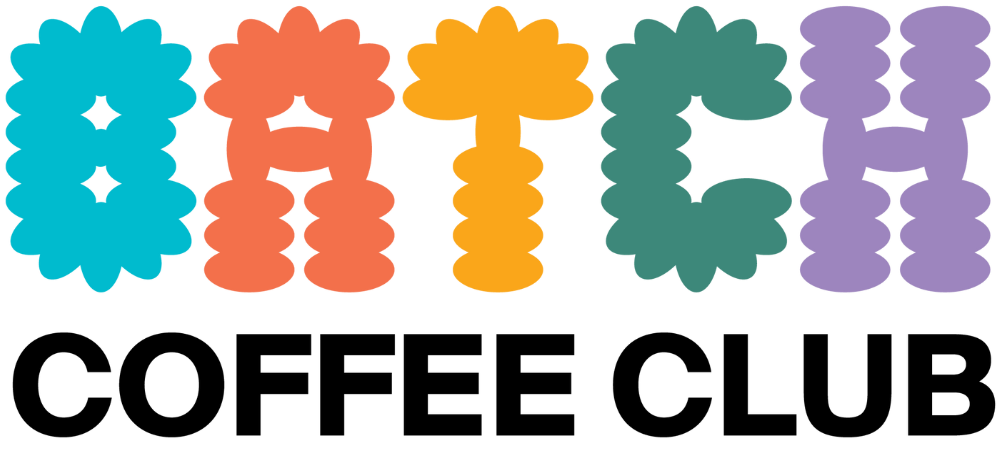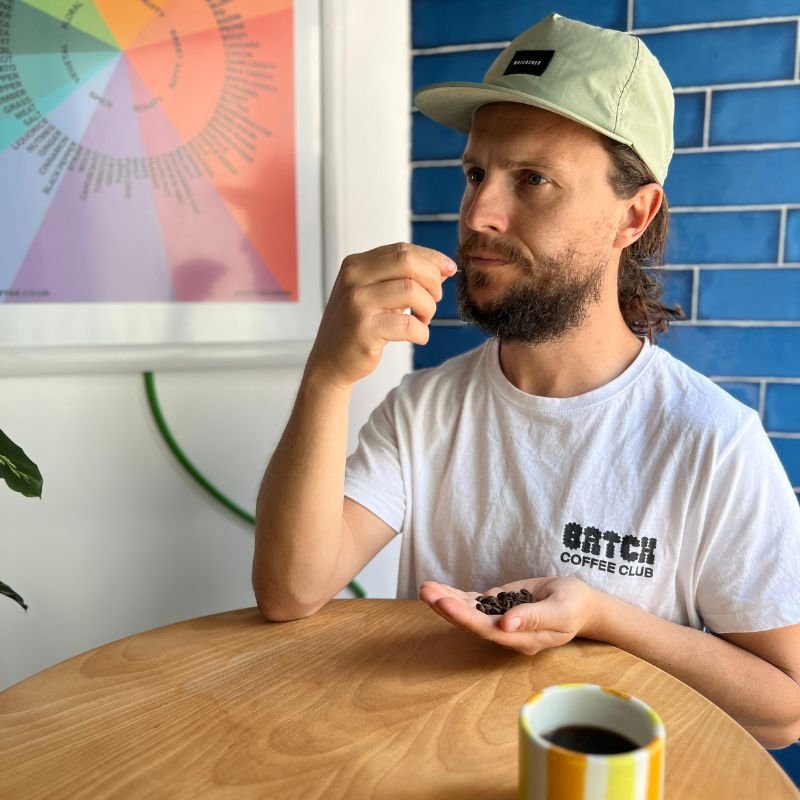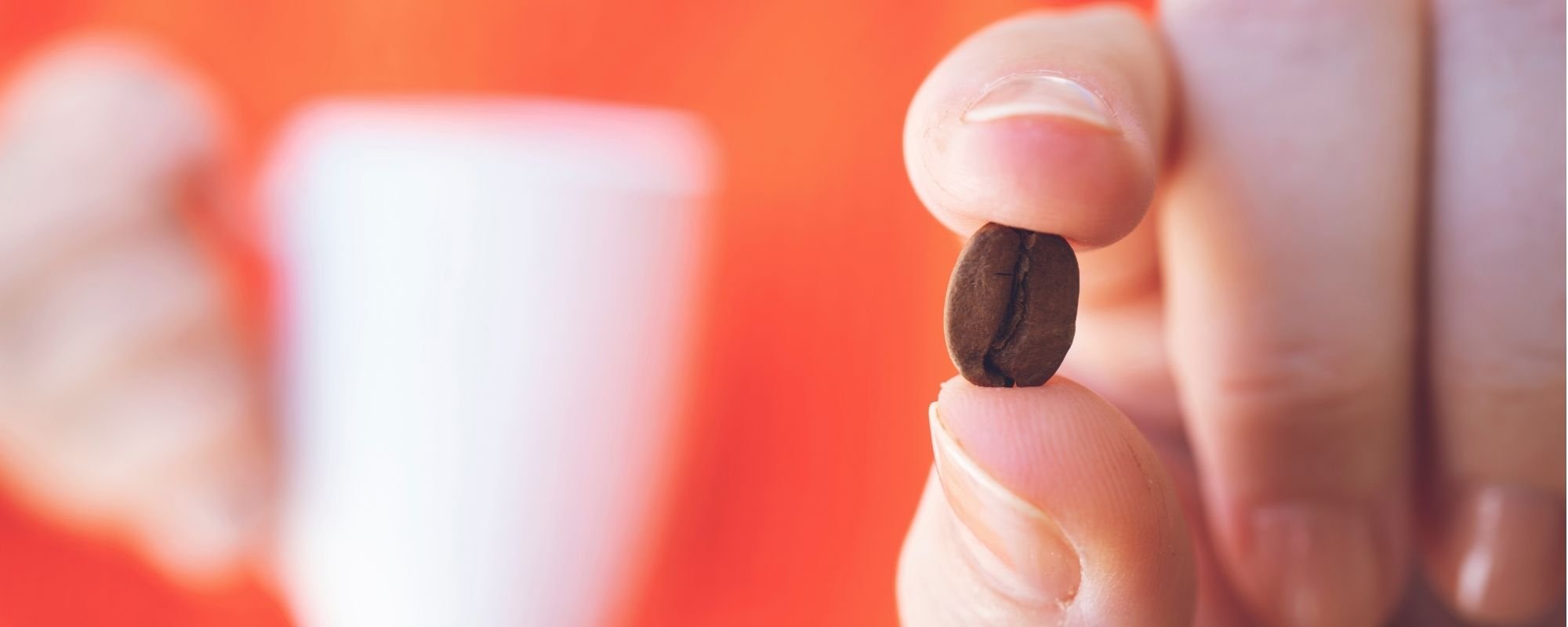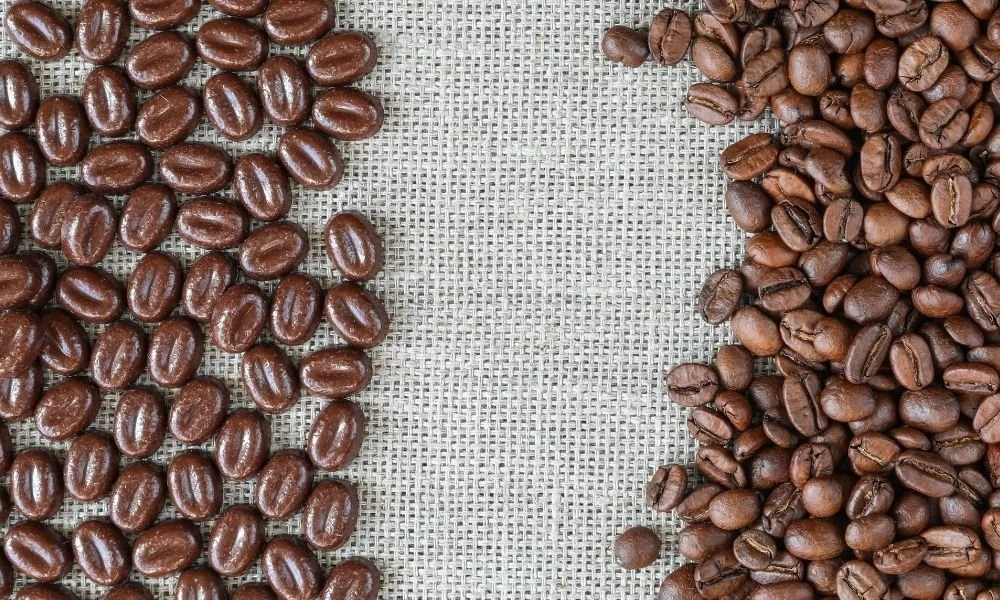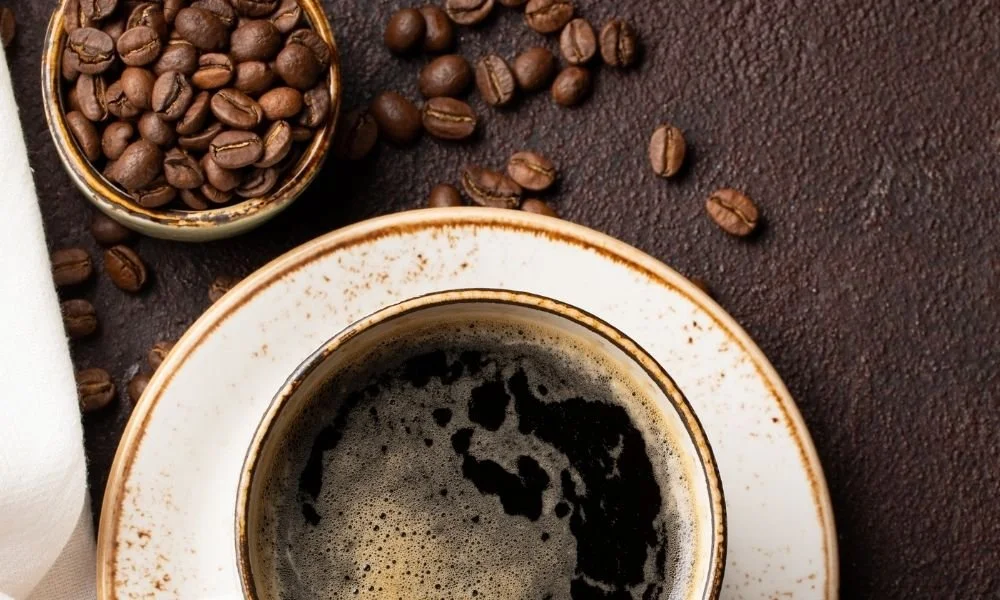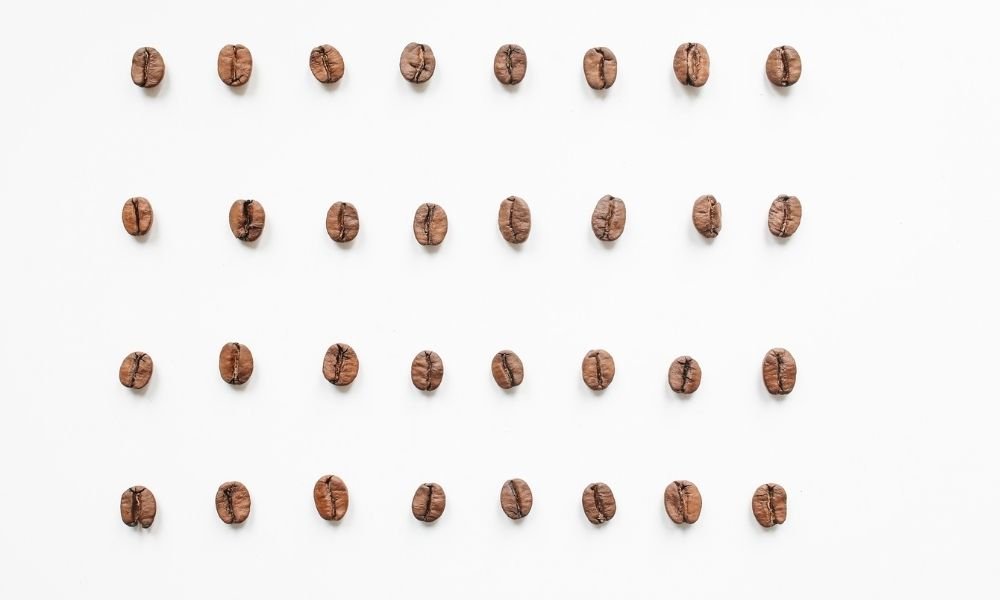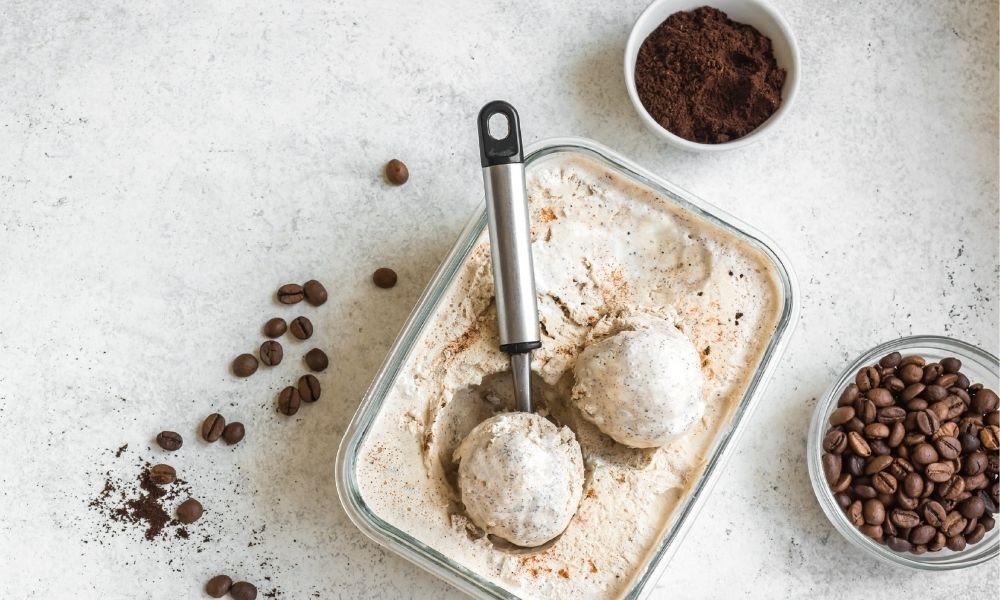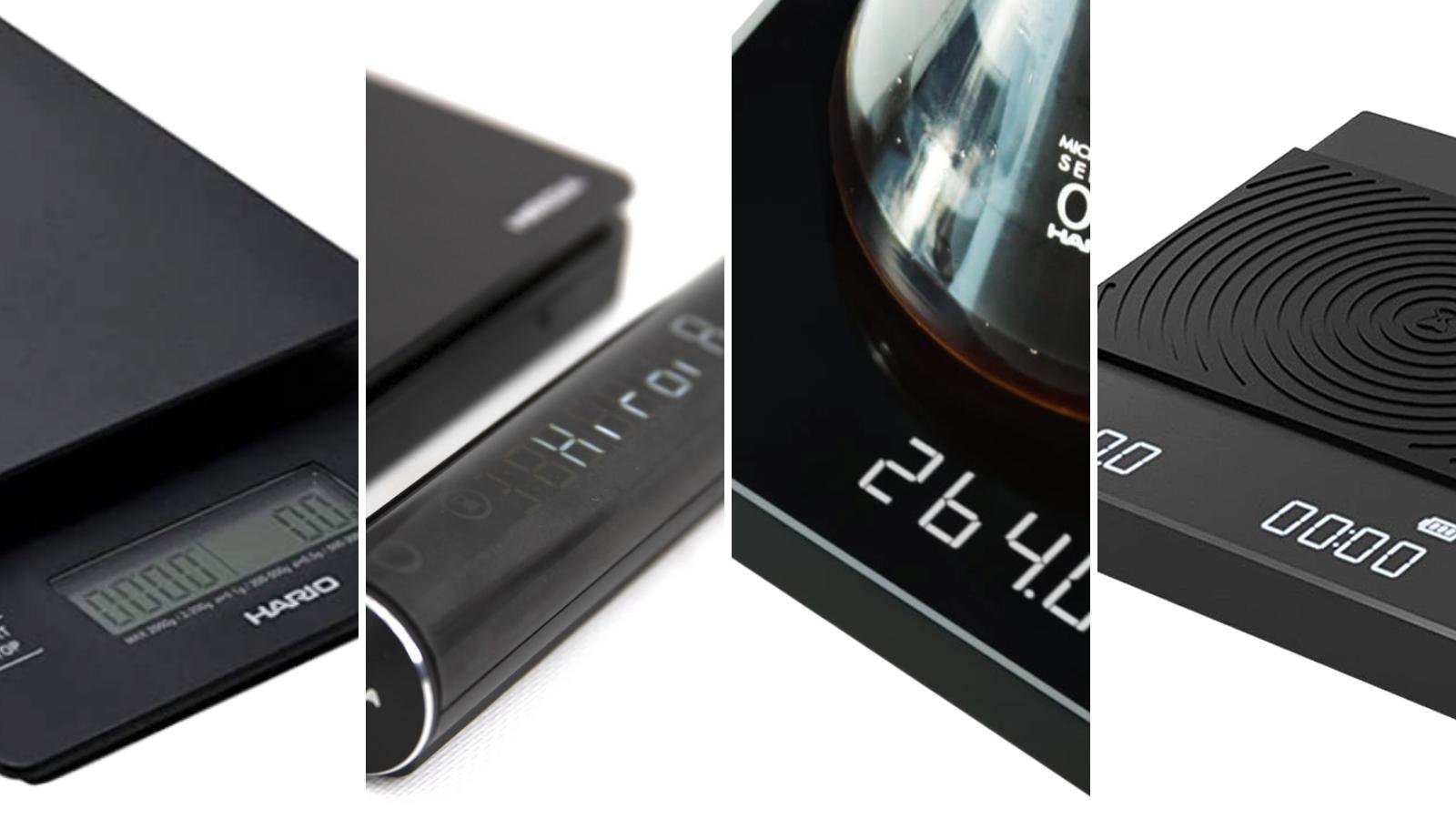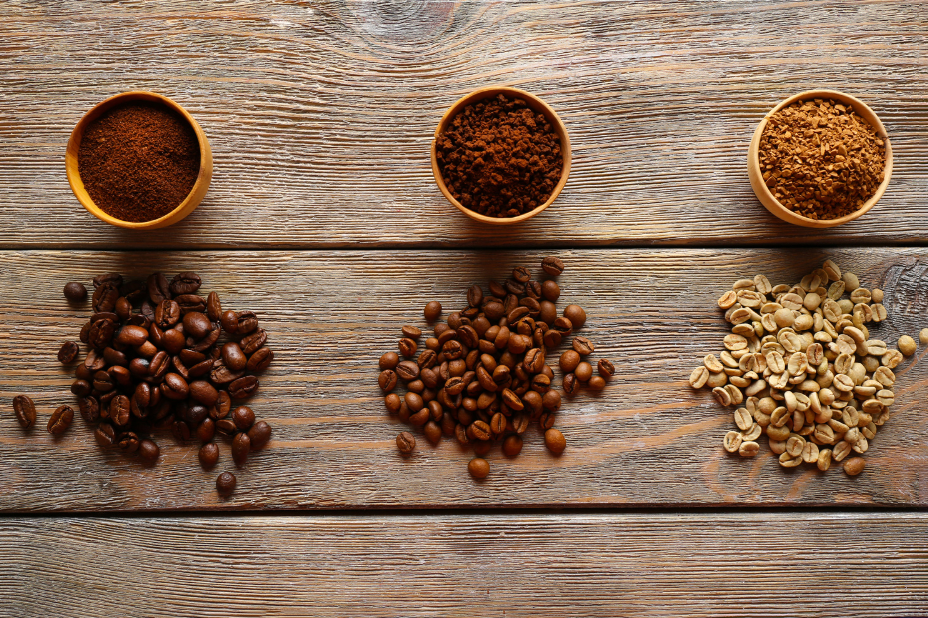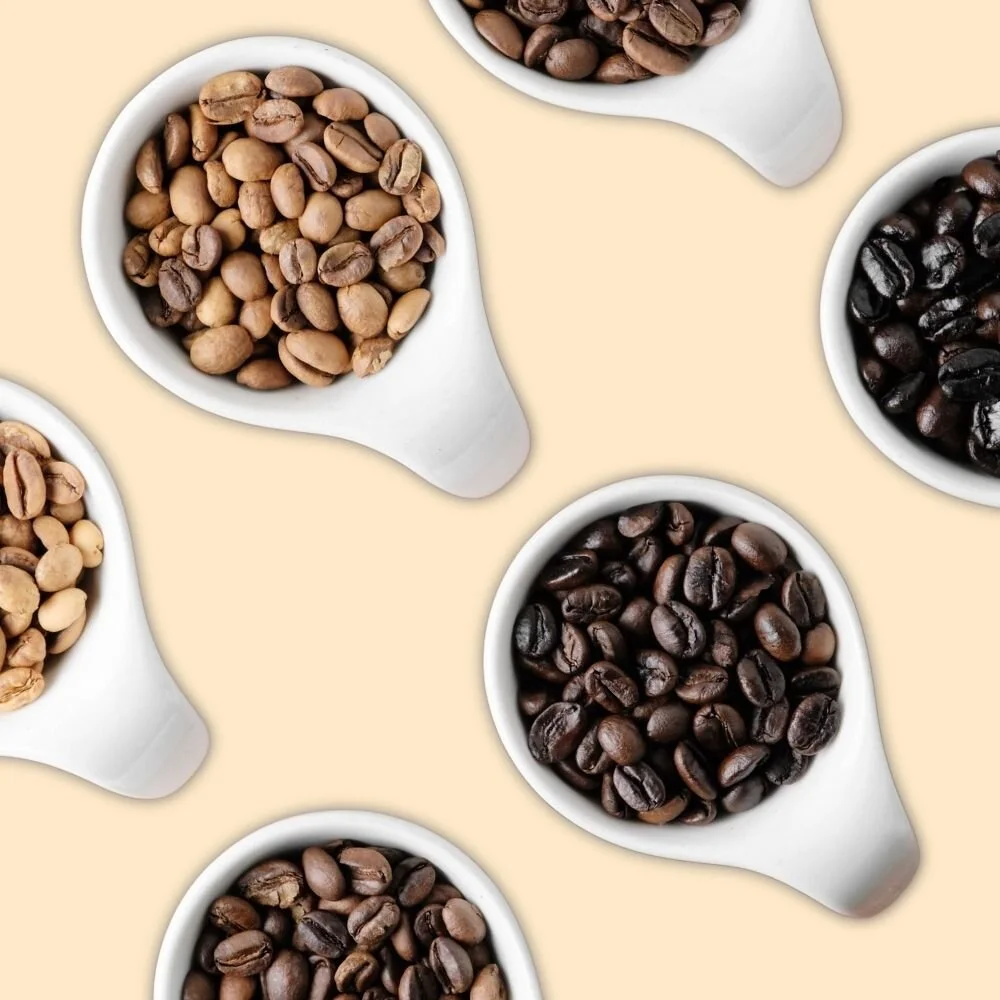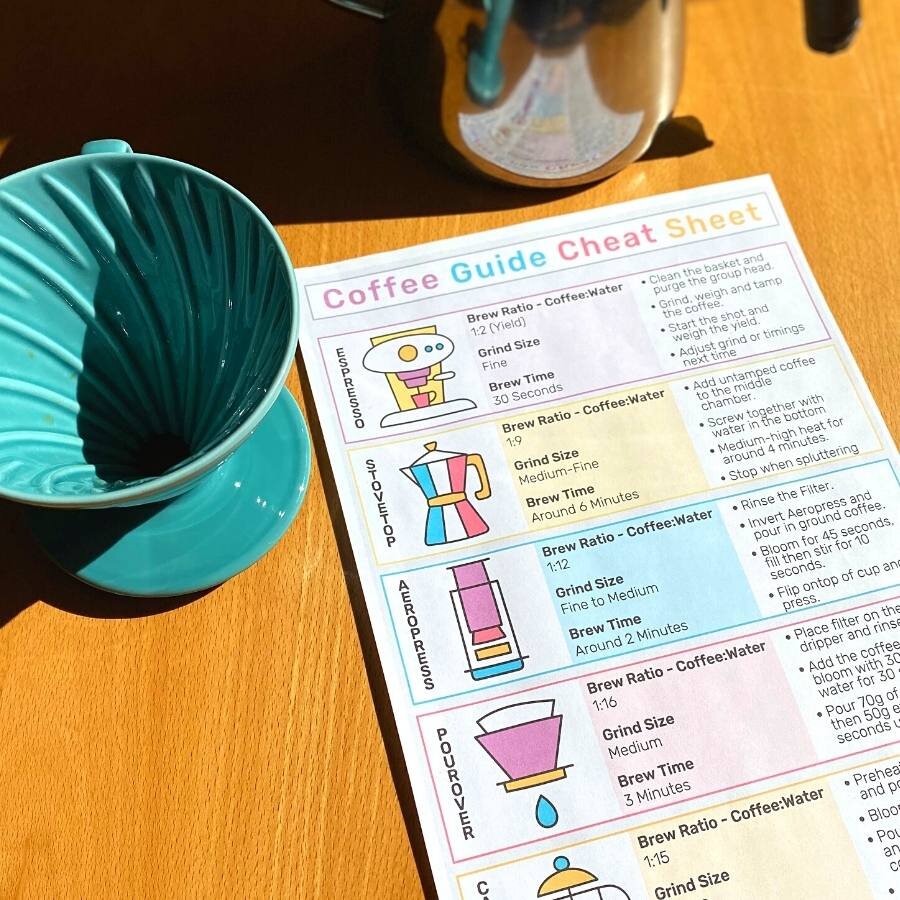Can You Eat Coffee Beans?
Coffee doesn’t have to stop as a delicious energising beverage.
If you are a little adventurous and open minded then eating coffee beans may be your ticket.
Coffee as a drink is made by brewing ground coffee beans that have been previously roasted, the dark complex beverage is consumed all over the world throughout the day (if you want to learn more about delicious coffee ‘wink’ checkout our coffee subscription)
Coffee brewing has been tweaked and tinkered with for years, today there are hundreds of ways for you to extract the delicious flavours coffee can hold.
There is one way of consuming coffee that is different from the rest of the brew methods and that is actually eating the coffee beans.
We spoke to Jeff Hong, a Registered Dietitian at Yanre Strength. He explained that eating a few roasted beans will give you a quick caffeine buzz but not much if you are a regular coffee drinker.
In fact, there are a great many places where you can purchase coated coffee beans and eat them like candy!
My personal favourite is dark chocolate covered espresso beans, because I prefer dark chocolate over other candies or candy coatings, and I'm a huge fan of dark roasted coffee.
All in all, eating coffee beans provides a small treat.
You may get some of the caffeine, but most is released during the brewing process, so you will probably not even get much of that through digestion of the beans.
So, go for it, you just may find you like them.
Is It Healthy To Eat Coffee Beans?
Pros:
Coffee has high antioxidant content due to the presence of chlorogenic acids, which belong to a compound known as phenolic acids.
Green Arabica beans may contain up to 140–150mg/g of chlorogenic acid compared to 80mg/g in green tea.
When coffee beans are roasted, they lose almost 50–70% of these compounds depending on the scale of roast.
Even then, it is much higher when compared to dried tea leaves.
These antioxidants can protect us from inflammation and cardiovascular diseases.
So, it is clear that eating undiluted roasted coffee beans will provide you with a lot more antioxidants than a cup of brewed coffee.
The same chlorogenic acids increase the solubility of caffeine, thereby helping your body to absorb more caffeine faster.
Now, caffeine itself has a lot of benefits to provide. Caffeine can cutdown the risk of oral cancer by as much as 50%.
Other benefits of caffeine include liver detoxification, stimulating hair growth, protection against cataracts and increased semen volume.
There are roughly 50 calories in a cup of coffee, which mostly comes from milk (that is if you add any).
A cup of black coffee does not contain more than 1–2 calories.
This is because coffee beans have fewer calories in them.
Coffee beans do not require much energy in nature.
Whatever boost in energy we feel is majorly because of the caffeine present in coffee.
Cons:
Coffee beans contain acids and other volatile compounds.
During roasting of green beans where it loses a better chuck of its antioxidants, a fewer number of volatile compounds are neutralised and other compounds (such as derivatives of fatty acids) are increased/ heightened.
This may lead to heartburn and other unwanted side-effects.
If diluted coffee causes a heart burning sensation, it is advisable to keep away from direct consumption of roasted coffee beans.
It is only likely to worsen in that case.
As mentioned above that the maximum caffeine intake for an average adult is 400mg, it is better you keep a check on the number of coffee beans you consume.
Roasted coffee beans may contain up to 6mg caffeine each.
Keeping a check on the number of beans being consumed is advisable.
Eating too many may result in high cholesterol, laxative effects, and major bodily discomforts.
Hence, if consumed in limited quantities, eating roasted coffee beans will do you good.
If still in doubt, it is always a good idea to take medical advice
Does Eating Coffee Beans Help You Lose Weight?
Eating coffee beans may promote weight loss, as the caffeine they contain has been linked to improved endurance during workout, improved metabolism, and an increased rate of fat burning.
To get the same amount of caffeine as a shot of espresso, you need to eat roughly between 37 to 48 coffee beans.
Laura Ritterman, cook and longtime recipe curator and owner of Recipe Fairy told us of her love for coffee at all times of the day.
She explains, “It (coffee) gives me the right amount of energy and vigor to complete my daily tasks.
However, when I need a quick pick me up, I actually eat a few coffee beans which boosts my mood a lot quicker.
Coffee beans should be taken in moderation, the same way you would drink coffee in moderation.
A small handful should satisfy the need for caffeine. The beans also tend to be gritty, so it may not be suitable for people who have textural issues.
Coffee beans can be bitter, but have such a concentrated and unique flavour and can be consumed in a variety of ways.
My favourite would be chocolate covered coffee beans which tastes exactly like drinking a mocha.
Pairing the bean with the chocolate helps to take away some of that bitterness.
Some other ways coffee beans can be consumed is to grind them up and add it to ice cream, or shave a bean on top of a dessert for added flavour and texture.
Photo: Business Insider
Coffee beans are also very low in calories and higher in fibre and many people who work out actually eat these beans before a workout to help boost their energy.
Overall, eating coffee beans can be beneficial for the body when taken in moderation and can really get you moving.”
How Many Coffee Beans Can You Eat?
Around 50 coffee beans roughly adds up to the daily amount of caffeine recommended per person.
According to healthline - The number of coffee beans you can eat in a day boils down to the safe level of caffeine.
It is recommended that a single dose of caffeine doesn’t exceed 200mg and daily usage up to 400mg. Anything more may impact your health.
Caffeine in coffee beans varies between size, type and varietal.
Robusta coffee for instance has a much higher level of caffeine than arabica.
While a Pacamara coffee bean may be 5 times the size of a Geisha coffee bean.
What Happens If I Eat Coffee Grounds?
Eating coffee grounds is the same as eating coffee beans.
It will have the same effect as eating the same volume of coffee beans.
That is as long as we are talking about ground coffee that hasn’t already been used, in that case, much of the caffeine would have already been extracted and the coffee grounds will taste bitter and vegetal.
How To Eat Coffee Beans
There are many ways to eat coffee beans.
Firstly the easiest and purest way in to just chew one in the back of your mouth.
You may see coffee roasters doing this from time to time, especially when they are learning how to roast coffee.
You can really gauge what a coffee will taste like if you eat a coffee bean once it has just been roasted.
Many artisanal shops now sell chocolate covered coffee beans as a snack or a treat.
They are very popular around Christmas time.
The smooth and sweet chocolate outer layer complements the coarse and bitter coffee in the middle.
You will see coffee beans available to eat in various forms like as a topping on an ice cream.
They usually pair well with sweet foods to balance out the bitterness.
Eating Raw Coffee Beans
Raw coffee beans are very hard to eat.
The consistency of dried green beans that you find in a coffee roastery is tough and extremely hard to break down.
The taste is wood-like and vegetal, not really an enjoyable experience.
Eating raw coffee beans that haven’t yet been dried (at origin) is still not a particularly pleasant experience.
Although the coffee beans are not quite as dense and chewy as they are once dried the taste is even more bitter and plantlike.
Which Coffee Beans Are Best To Eat?
Eating coffee beans is fairly reflective of what you can expect if you were to brew the coffee.
So, if you like to drink dark rich roasty flavoured coffee then have a go at eating dark roasted coffee.
If you’re the sort to enjoy a floral note or two, then how about a light roasted coffee to chew?
Certainly eat roasted coffee though, unroasted raw coffee is tough and chewy and that dry you will struggle to break it down.
What Happens If You Swallow Coffee Beans?
You will be ok as long as you don’t choke.
Coffee beans are pretty small though so they shouldn’t be a hazard.
There won’t be any other side effects (or incredibly minimal) as the amount of caffeine is essentially the same a sip of coffee.
Can eating coffee beans be healthier than drinking coffee?
They've got the same health benefits as brewed coffee, like antioxidants, but eating beans means you're also getting some dietary fiber. Just remember, they're more concentrated in caffeine, so you might feel the effects more.
Are Coffee Beans a Laxative?
Coffee beans contain caffeine, which can act as a mild laxative by stimulating the muscles in the intestinal wall and increasing the production of stomach acid.
This can help to speed up the process of moving food through the intestines, which can make it more effective at preventing constipation.
However, eating too many coffee beans, particularly on an empty stomach, can also cause diarrhea and stomach upset in some people, so it's important to consume it in moderation.
